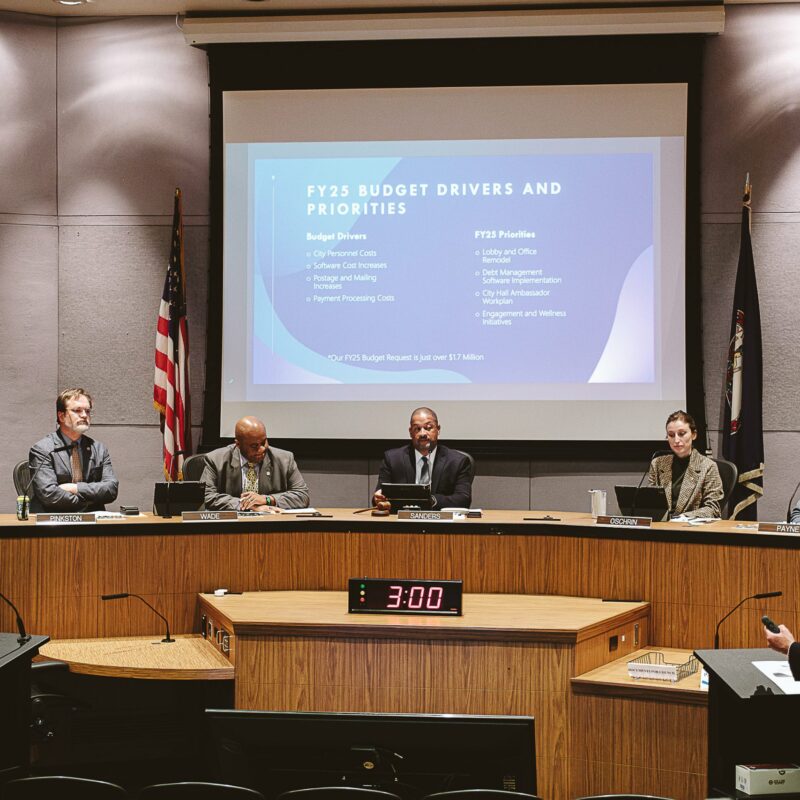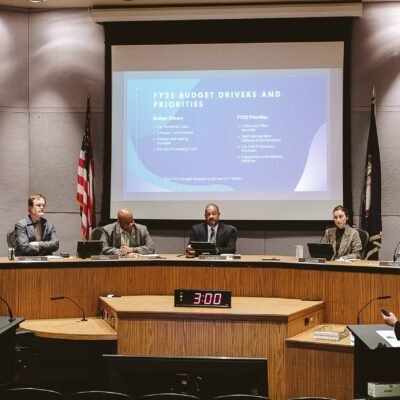I’m struggling to take a charitable view of Neil Williamson’s Opinionated [May 29, 2007]. But I will try, because the participation of business interests is vital to exploring the information and public involvement preliminary to adopting an optimum population element in the county’s comprehensive plan. But I must observe that The Free Enterprise Forum, described as a “privately funded public policy think tank,” could be just as aptly described as a “local growth-machine echo chamber.” It is funded by those sectors of the business community that have most to gain from continuous and rapid growth.
With apologies to Coleridge, the conservative English poet, this growth machine segment of our business sector is a Cyclops, with its huge, single eye located in the back of its head and focused mostly on an archaic belief: that continued expansion of population and business growth is the key to community happiness and welfare. The Cyclops is handicapped when it is the future and not just the past, the natural and cultural, and not just the commercial, that must be assessed. A more neutral and dispassionate assessment of both costs and benefits of growth is imperative.
Thoughtful citizens appreciate that perpetual, rapid growth—even so-called smart growth—means increasing profits for a few, especially in one sector of the economy, while putting the negative costs of growth on established neighborhoods, and the general public in terms of increased taxes, loss of open space, congested roads and failing infrastructure. Most importantly, the community’s sense that it has lost the capacity to democratically shape its character is fatal to citizenship.
There are difficult data and methodological issues associated with defining the basis for an optimum population. Before any official element is added as a guideline for managing growth, these issues must be explored and discussed. But rather than address these difficulties and agree to participate in a representative citizen discourse, Williamson raises the specter of moats and population police in local bedrooms.
If he had acknowledged that the rates and extent of in-migration of population is a key indicator of our local growth context, and that it will take some innovation to deal with that sensitively and appropriately, we’d have a basis for serious discussion. As it is, his Opinionated confirms the old political axiom that the source of the most foolish and distorted policy arguments emerge when an opponent of a novel, progressive idea purports to forecast its consequences.
The real threat of a comprehensive plan amendment lies elsewhere. If a targeted optimum population were to be included in the county‘s comprehensive plan, it would overcome a serious deficiency in the current version. One will find much there of interest, but what one won’t find is any operational basis for realizing a vision of the community’s future size and character.
If an optimum population target were to be adopted after an assessment of the costs and benefits of growth, and strong support converged around this optimum target, it would have immense consequences for the planning process and our everyday lives, as well. Opponents of even exploring the concept of an optimum level know this, and that is why they oppose it.
The inclusion of an optimum numerical range in the comprehensive plan would give professional and citizen planners an important benchmark for assessing the cumulative effects of ad hoc, parcel-by-parcel commercial and subdivision development. The optimum population range creates a legal, rational tool for managing growth.
But an optimum population target is not a substitute for continued in-the-ditches efforts by citizens resisting unwelcome, excessive commercial and subdivision approvals. Williamson derides citizens efforts to manage destructive aspects of growth as a NIMBY (not in my backyard) syndrome. What he fails to recognize is that the increasing negative impacts of growth have generated a NIMBI (now I must become involved) eruption. The county supervisors should support the exploration of this optimum population concept. As a professional planner for many years, I have some sense of why it will assist citizens shape their community’s future.
Richard Collins is a professor emeritus of planning at the University of Virginia’s School of Architecture, a former professional planner and a founding board member of Advocates for a Sustainable Albemarle Population.





